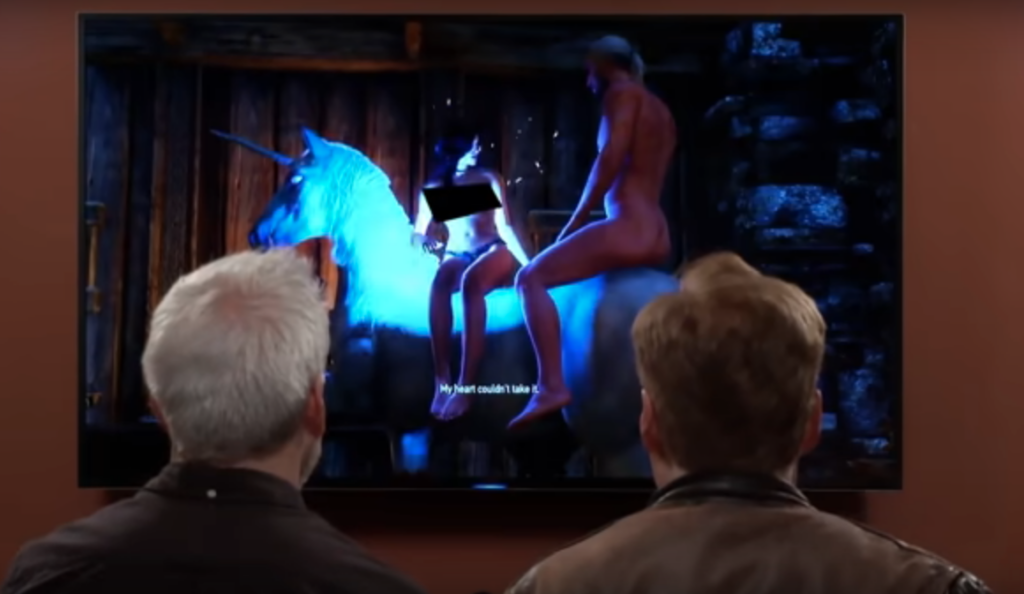The Things That Got Me Through Quarantine: The Videogames
Over the last year and a half, most of us have seen our worlds turned upside down because of the COVID-19 pandemic, on top of the problems we already face in our everyday lives. But this unprecedented time has also given us a chance to explore new hobbies, do some soul-searching, or maybe even binge that show you’ve always been meaning to watch. Here’s a look at one of the things that helped me cope while the world was falling apart around me: videogames.
Working a full-time job in Los Angeles with aspirations of being a screenwriter, plus attempting to maintain a respectable social life, meant that for most of the past decade, I haven’t had time for much else.
Playing videogames was a daily treat as a child, but in adulthood, it became a luxury I could rarely afford. Plus, there were only a few games over the years (outside of the highly addictive Madden and NCAA Football franchises) that ever held my attention. When I made the financially irresponsible decision to purchase a PlayStation 4 during the holiday season in 2015, lists of the console’s must-own games pointed me in the direction of something called The Witcher 3: Wild Hunt. I’d never heard of this “witcher” thing.
Now, it’s hard to fathom a reality in which I was unfamiliar with The Witcher 3, an action/RPG (role playing game) that I finally had time to beat during the pandemic after sinking nearly 5 years and 186 hours of my life into it. In my opinion, it’s the greatest game ever made, full stop, and I’m not sure I would have ever finished it had the pandemic never happened.
I’ve always been eager to spread the gospel of The Witcher 3 to fellow gamers. When gushing about it to a friend recently, he responded by telling me he’ll probably never play it. “But why?” I asked.
“Because hearing you talk about it is like listening to a heroine addict describe how he’s chasing that one great, first high.” My friend is not wrong, because as incredible as The Witcher 3 is, I fear it has ruined videogames for me forever.

If anyone has heard of The Witcher franchise, it’s probably because they’re aware of Netflix’s The Witcher series starring Henry Cavill, the first season of which was released in December 2019. The show is adapted from Andrej Sapkowski’s Polish-language novels and short stories about Geralt of Rivia, a monster slayer known as a “witcher.”
The franchise follows the adventures of Geralt, his adopted daughter, Ciri, and Geralt’s on-again, off-again sorceress lover, Yennefer, as they traverse a medieval world known as The Continent. Geralt’s world is not unlike that of Game of Thrones – The Continent is a brutal place populated by warring nation-states and political intrigue (which Geralt always seems to get wrapped up in, despite his best efforts), as well as monsters and magic. The Continent experienced an event called “the conjunction of the spheres” during which parallel dimensions collided and humans were deposited into a world populated by elves, dwarves, vampires, dragons and a litany of other magical creatures. Not all of them are bad, but some are.
Geralt is a “witcher,” a class of quasi-humans genetically altered through magic and other unnatural means to become the ultimate monster-killing machines. During Geralt’s lifetime, the witchers have all but died out and are treated like second class citizens.
The Netflix series is adapting the books from the very beginning, while the videogames serve as sequels to the books, with The Witcher 3 being the franchise’s conclusion…for now.
This all sounds very nerdy, but I assure you, The Witcher 3 is the alpha and omega of videogame experiences.
All the way back in 1996, my life was transformed when I got a Nintendo 64 for Christmas. All I knew before that were the 2D side-scrollers of my family’s hand-me-down NES. Playing Super Mario 64 for the first time was mind-blowing because my 7-year-old brain had never seen anything like it. A game fully-rendered in three dimensions, in which you could go anywhere and do anything, was entirely novel. Exploring the physics of Mario jump-kicking off walls truly felt like a next generation experience.
This was a feeling I never encountered again – until I played The Witcher 3. The overall mechanics of the game are something we’ve seen time and time again. As Geralt, the player travels from town to town in search of Ciri, and along the way can accept side missions and witcher contracts to earn extra money and gear. You level up, gain new abilities, and craft weapons and potions. The open-world mechanics are familiar, but it’s the extent to which they’re developed that makes the game transcendent.
The Witcher 3 feels alive. Unlike other role playing games like Pokémon or Skyrim in which your avatar is a blank slate, Geralt is a fully formed character with 30 years of published works to draw from. He feels like a real person, as do the multitude of NPC’s (non-player characters) you encounter on your 100+ hour journey. I could write another 1,000 words about the game’s story, but you’ll have to experience it for yourself. The game’s ending left me with the same feeling I had after completing a prestige drama like Mad Men or Breaking Bad.
Every side quest, whether it’s important to the story or not, feels as though it’s been written with the same care as the game’s main quest to find the missing Ciri. Every excursion off the beaten path comes with a reward. Sometimes, you’ll see an interesting structure hiding a nest of monsters who yield valuable crafting materials. Other times, you’ll take on a quest to find someone’s missing son or wife, only to go on a misadventure that results in utter heartbreak or the discovery of powerful armor and weapons. On one occasion, you’ll take hallucinogenic mushrooms and get to solve a mystery alongside your trusty horse Roach, who is suddenly gifted with the ability to speak and make meta-cultural jokes about the game.
You can eat food to recover your health, including the consumption of alcohol. Beer and wine will replenish your health bar, but they will also blur your vision and skew the controls so that it’s impossible to walk straight. You can even purchase hookers and if you play your cards right, can seduce certain female characters, (SPOILER ALERT) one of which you can have sex with on top of a wooden unicorn.

I could go on, especially with regards to the collectible card game within the game. Gwent is addictive and some players like it more than the overall game itself.
There are no empty experiences in The Witcher 3. Its divine design is apparent from the first hour until the last.
This is especially apparent when compared to another open-world action RPG I got to experience during the pandemic – The Legend of Zelda: Breath of the Wild (BoTW) for the Nintendo Switch. BoTW is a fun and beautiful game. But it pales in comparison to The Witcher 3, and sometimes feels hollow and repetitive.
Whereas The Witcher 3 contains several bustling cities and one metropolis that requires a map to navigate, BoTW contains only a few towns with no more than 20 residents. The Witcher 3 gives you some kind of reward for its hundreds of side quests, while BoTW’s are entirely skippable, and often result in obtaining a small amount of money or a piece of fruit that can be found in the wild.
The characters in Zelda are quirky and fun, but lack the depth, development and expert storytelling of The Witcher 3. Shockingly, it’s The Witcher that feels like the truest successor to the N64 classic, The Legend of Zelda: Ocarina of Time, not Breath of the Wild.
BoTW isn’t a bad game by any means. It’s fun and polished, and I spent upwards of 120 hours on it. It just feels like there’s meat left on the bone.
In the end, The Witcher 3 rules all. It’s a game so disruptive to my social life that while on dates in LA, I actually found myself asking the question, “would I rather be with this person right now, or would I rather be playing The Witcher?”
And I may never have gotten the full experience without the pandemic. The Witcher 3 offered an immersion into another world free from a deadly virus, conspiracy theories and existential dread. For that, I will be forever thankful.
Here are some other fun games I got play while on lockdown:
Super Smash Bros. Ultimate (Nintendo Switch) – It’s Super Smash Bros. with every character they’ve ever had, but with online multiplayer and in beautiful HD. What’s not to like?
Resident Evil 2 (PS4) – Capcom took the gameplay mechanics of Resident Evil 4 (one of my favorite games ever) and used them to update another classic entry in the series.
Uncharted 4 (PS4) – It’s like a playable Indiana Jones sequel in which you can leap inhuman distances and gun down hundreds of enemies without so much as a thought of the moral implications. It’s like all of the other Uncharted games, but bigger and better.
Persona 5 (PS4) – A weirdly fun mash-up of anime high school life simulator, RPG, dungeon-crawler and Pokémon. To be honest, it had me at “anime high school life simulator.”
The Legend of Zelda: Skyward Sword (Nintendo Wii) – I finally got around to dusting off my Wii and playing this forgotten gem. If you like Zelda, you’ll like this entry, its main draw the 1:1 sword combat.







